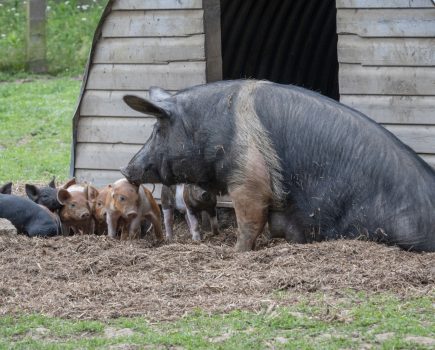November 3 2007: Policies for the control of economically significant livestock diseases are shaped primarily by political and international trading considerations, rather than by science or animal welfare, says leading smallholder and CS columnist Alan Beat.
“The reality for smallholders is that the impact of foot and mouth disease on their livestock is relatively minor, whereas the impact of policies imposed for its control can be catastrophic,” he says.He says the current outbreak in Surrey clearly illustrates this. At the farm designated as IP5 on September 16, the cattle had been through the entire disease cycle, and fully recovered. But, once discovered, the entire herd was slaughtered, even though scientifically it presented no threat.Worse still, the smallholder may suffer the slaughter of uninfected animals if Defra considers them merely at risk of infection, as with the notorious ‘contiguous cull’ of the 2001 epidemic, he says. There are now draconian penalties for refusal. “The impact of avian flu on smallholders is similar to FMD, in that they have little to fear from the disease itself, but much to fear from the policies to protect international trade. “Defra’s version of spread across Europe clearly implies ‘transfer’ of virus from wild birds to commercial units, when all available data worldwide shows that transfer occurs in the opposite direction.” A Defra spokesman said: “Throughout this outbreak we have taken a risk-based, staged approach to disease control measures. All decisions are based on scientific and veterinary advice. “Our overarching objective is to stamp out the Foot and Mouth Disease outbreak by minimising the impact on the rural economy, international trade and the wider public interest, and providing due protection for the welfare of the animals concerned.”







